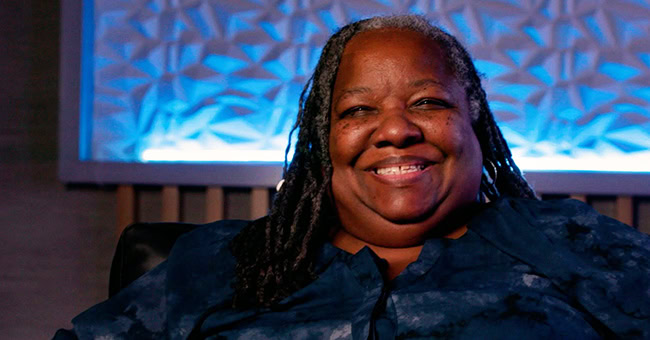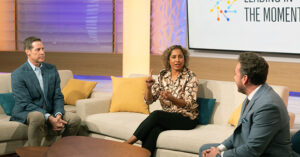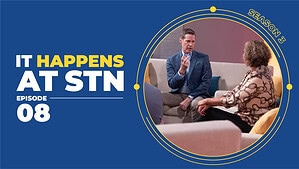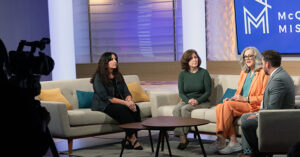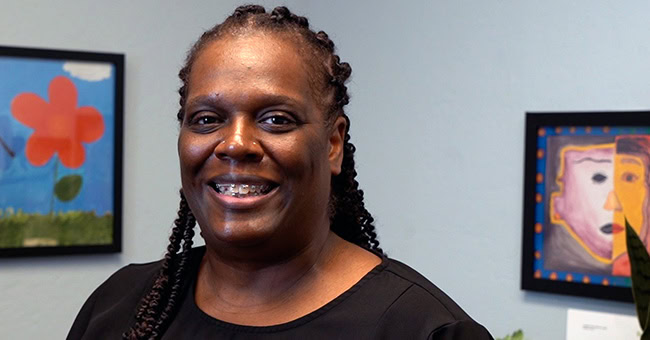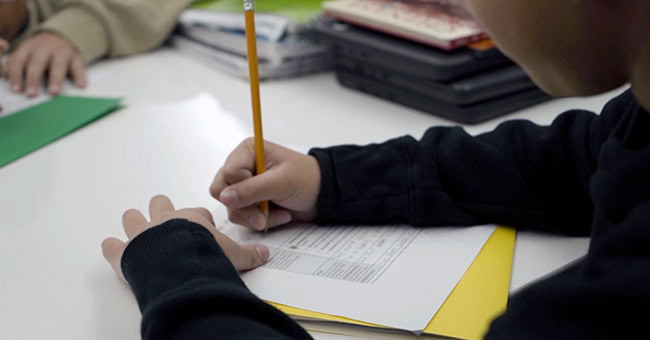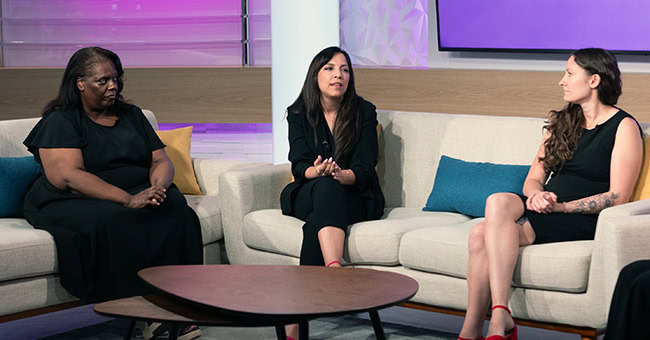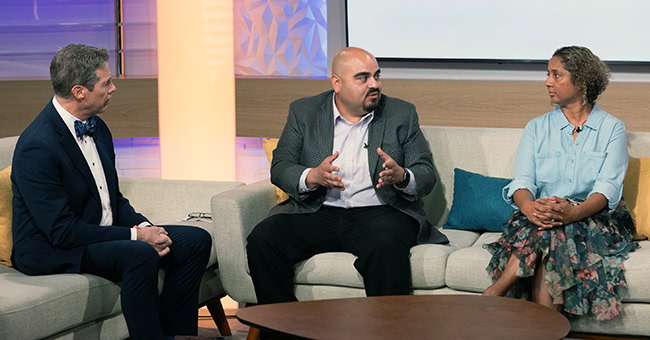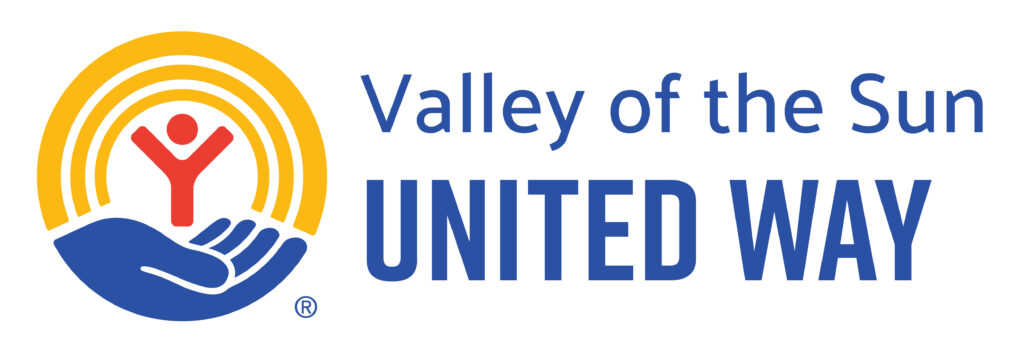PHOENIX (STN) – When Estella “Stella” Rochelle McHenry became the first Black woman to graduate from Arizona State University in 1925, she likely created a profound legacy, one that would deeply inspire her grandniece more than seven decades later.
“It was just a blessing to have that legacy to carry on,” said Donna McHenry.
Twenty-eight years after Donna McHenry graduated from ASU, she spoke with STN about following in her great-aunt’s footsteps and how it shaped her understanding of commitment to community.
She also discussed her current role as the cultural sensitivity administrator for Mercy Care, where she works to address racial disparities and correct inequalities in the healthcare system.
“We’re addressing health disparities and ensuring that there’s health equity in place,” she said.
Watch McHenry’s interview from the October episode of ‘It Happens at STN’ and read the exclusive, extended transcript of her interview below.
This transcript has been edited for clarity and consistency.
DONNA MCHENRY:
My name is Donna McHenry. I’m the Cultural Sensitivity Administrator for Mercy Care.
STN:
We want to get started with a look at your path to today. So, let’s talk about where you grew up and what childhood was like for you.
DM:
I was born and raised in the South Phoenix area. I was born in a family of five. My mother had two sets of twins. I have a twin brother. Unfortunately, I was twin to the only boy in the family, so not only is he the baby, but he’s the only boy. So you can imagine what life was like.
We were born in Phoenix Memorial Hospital. It was one of the only hospitals in the southern region of Phoenix. We were a Catholic family. Everyone knew us at St. Catherine’s, so it was fun. Our family was one of the first McHenry’s here.
Went to school in the Roosevelt School District. Went on to go to high school at South Mountain High School. And then on to Arizona State University.
STN:
You and your family have a historical connection to ASU that dates back almost 100 years. Can you explain that and what it has meant to you?
DM:
My great-aunt was the first African-American woman to graduate from Arizona State University. It was a blessing to have that legacy to carry on.
STN:
Other than following your great-aunt’s footsteps in graduating from ASU, what role has your family played in developing you as a person?
DM:
Besides education, one of the things that was important to my family was always being community-oriented. We believe you could only be as healthy as your community and the folks around you.
Whenever there was a family event, a celebration, [or] a holiday, we were used to having our neighbors over celebrating. We always packed food if a neighbor needed it. We always provided clothing because we knew that when we were in need, people were there for us. So we always felt a need to be there for others.
STN:
How would you say being so community-oriented from a young age influenced your journey to Mercy Care?
DM:
It was rough because I grew up on a popular street that was always written about because of the gang and drug activity at the time. I always felt that if we had those opportunities or if we had access to the right resources, we could get beyond the state that we were currently in.
I remember at South [Mountain High School] we had an English teacher who gave us the opportunity to write about something that was going on. I wrote a piece about a mother who lost her son to gang violence. Despite all the steps she took to mitigate that outcome, it still occurred. I remember sharing that in our class and it was the one time we were able to speak about what we were experiencing and losing our friends or seeing the things happening in our community.
From there, I remember working with Mothers Against Gangs to perform that piece around the community so that we could talk about what was the change that was needed for families to move beyond the violence and the drug affairs that were happening. That really sprung me to do more.
Gus Edwards, who is a professor at Arizona State University, invited me to perform at ASU [which] propelled me to get my degree in communication there. I graduated Student of the Year because of my involvement in the community.
I had my internship with the Department of Juvenile Corrections and from there [I] worked for a number of key nonprofits in the community. From there I went on to work for the Regional Behavioral Health Authority, then I moved to Maricopa County for 12 years as their crime prevention specialist. Then I was blessed to come over and do additional work with Mercy Care as their cultural sensitivity administrator.
STN:
Can you talk about that role? What does a cultural sensitivity administrator do? What do you oversee in your position?
DM:
I partner with my colleagues to address our health equity efforts. My role is developing, implementing, and overseeing our cultural competency plan and program. That involves language services and ensuring that we have the resources and tools provided and provided for our colleagues and providers with regard to how we become culturally responsive to the members that we serve.
So it’s looking not only at the community information but [also] our member information. What is it telling us that is needed to help people take better care of themselves and their health and well-being?
STN:
One of the areas you are focused on is health disparity, specifically as it relates to maternal morbidity in the Black community. Can you talk about the work you are doing and the impact you are seeing?
DM:
One of the health disparities that we find is within the Black [and] African-American community, we see the maternal mortality rate is four times higher than the white population. I’d be remiss [to not mention] that when we’re talking about Arizona, tribal communities are also impacted. They have the highest mortality rate here in Arizona.
It’s not new. It’s something that has been a statistic that has been haunting us for quite some time.
An opportunity presented itself for Mercy Care to host a screening of Birthing Justice that looks at the experience that the Black community goes through; looking at some of the systemic changes that are needed.
Arizona just received support to expand postpartum care from six months to 12 months. You have [a] public health grant for doulas, which is considered a best practice strategy for helping women of color who are going through their birthing experience. Those are the types of changes that were needed.
When we’re talking about addressing health disparities and ensuring that there’s health equity in place, we know that we have to address [them] on multiple levels in a targeted way. It’s about changing our policies. It’s about making sure that the institutions that are there to help us have the right resources in place. We see that many of the medical schools are changing their curriculum. They’re embodying things such as explicit bias training for doctors, the nurses and social workers. We see that there are diverse practices [in] regard to hiring and contracting. They see the importance of incorporating the community in the work that’s being done is following the model: Nothing about us without us.
Mercy Care prides itself on incorporating our members and the community into the advocacy of our work and holding ourselves accountable so that we can ensure that we’re addressing the needs of our members and the community.
STN:
Collaboration with like-minded partners is key to doing the kind of work you are doing and seeing the kind of success you have seen. What are some of the things that you look for, specifically, when collaborating with other organizations?
DM:
One of the key things [is] the whole notion of social determinants of health. Knowing there are other elements that play a factor in one’s health and well-being. It’s not something that’s isolated in the health community, but it’s those factors that are around it that have an impact. We have no choice but to partner with stakeholders in the community to address those needs.

We believe you could only be as healthy as your community and the folks around you.
Donna McHenry
When we have individuals or agencies that are out there that are looking to partner with Mercy Care, we want to hear from them. We want to know what role are they looking for us to play. Are you looking for the expertise that our staff would bring? Do you need materials to support people in your neighborhood or people in your organization? We have an excellent marketing and communication team that provides those documents, not only in English but also in other languages within our community.
We want people to learn more about Mercy Care and how we can learn more about them. The more that we can be engaged in collaborations and be out in the community, we start to earn that public trust back that has been lost over the years because of the systemic issues that we’ve been facing. Whether it’s looking for opportunities to collaborate on grants, collaborate on events, or just help educate people to improve the system overall, we would be looking to collaborate with them.
STN:
For those people who would be looking to collaborate with Donna McHenry, what’s the best way to get your attention?
DM:
Oh, I am easily approachable. You can always get in touch with me through Mercy Care or by email or phone. For those who need a different avenue to meet or have a discussion, I can always set up a virtual meeting for us.


